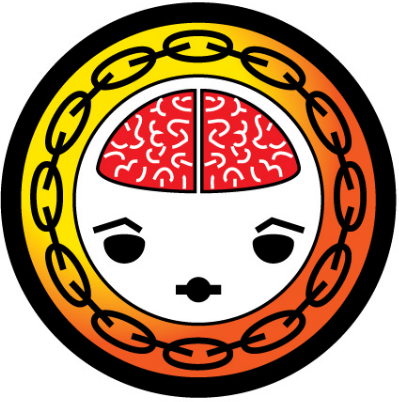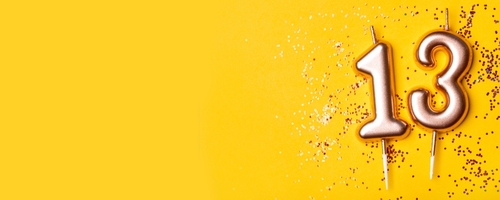Happy holidays to all.
I started this blog in 2010, and have grown the readership to over 3000 regular readers. At first, very few people would post back. <To say that the traditional supply chain audience is a bit uncomfortable with twitter and blogging is an understatement.> As the blog matured, it attracted a different audience. I now have a number of university students of SCM following me. I find it very rewarding to get their comments. Last week, a reader replied to my supply chain trends piece:
“As a current graduate student in Supply Chain Management, I have seen significant discussion on talent management. Is this a trend that you are seeing? And, can you give some advice to graduates on how to improve their skills to align with what employers are seeking? I stumbled upon your blog a couple of months ago, and have really enjoyed your perspective on the challenges and opportunities within supply chain roles.”
Abby, I don’t know you, but this blog post is designed to answer your question. In short, the answer to your question is YES. I feel a bit like I am answering the inquiry by Virginia on September 21, 1897 which was answered by the famous editorial of The New York Sun, “Yes, Virginia there is a Santa Claus.” His reply was that Santa exists as love and generosity. My answer is that there will be very different jobs than the jobs that you see today.
If you are the Abigail Mayer of Plymouth University, UK born in 1990, you are in the third generation of supply chain leaders. My generation is currently passing the baton to the second generation. I write this blog post so that all of you and your classmates may find rewarding jobs in the world of supply chain management. Here I answer your question, and give advice to new graduates entering the world of Supply Chain Management
Making the Transition
The term supply chain management is new. It was first used widely by the audience in the period of 1992-1995. As the baton is passed, let’s celebrate the legacy. Within the last two years, leaders like Donald Bowersox of Georgia Tech, Dick Clark of Procter and Gamble, Eli Goldratt leader of the AGI-Goldratt Institute, Tom Mentzer of University of Tennessee and Stefan Theis of SAP have died. 30% of the people that I am interviewing have retired or are ready to retire. My first words of advice is spend time with these folks to learn the evolution of the concepts. Understand what it was like before technology made the concept of Supply Chain Management possible. These were the days when writing meant a pad of paper and a pencil, when a presentation focused on the right transparencies and bulbs for the overhead projectors, the creation of a report involved lots of white-out and typewriters, and the final report was sent by inter-office mail. Calculations were done on adding machines and mainframes. The concepts of near real-time data and predictive analytics were as much a fantasy then as Santa Claus is today.
The second generation of supply chain professional (ages 35-50) is where we are currently seeing the greatest talent issues. This is the generation that implemented ERP, ecommerce, and Advanced Planning Systems (APS). They were often the boots on the ground for the global supply chain. Many of them were pioneers: relocating their families and learning the nuances of global supply chain management the hard way. In short, there are too few of these trained individuals to fill the gaps of the retirees. The good news is that if you learn fast, you can help fill-in the gap.
I see from LinkedIn, that you are in the third generation. We give thanks that academic programs are fueling the wave for the third generation of workers, but we are unsure what your world will look like. We think that the forecast entry-level jobs will be rosy, but we are unsure of how SCM practices will evolve. To help you, I share five pieces of advice:
- Get good at Math. SCM is a world where math geeks excel. Be proud of it, but learn how to use data to drive value-based outcomes. Think analytically, and use it to influence cross-functional groups. Data for the sake of data or math for the sake of math does us no good.
- It starts with Clarity of Strategy. I cannot count the times that I hear that it is about “people, process and technology.” Yawn, I say. I think that the REAL secret to supply chain excellence is alignment on supply chain strategy. If this is done right, it is the foundational building block to aligning people, building processes and selecting technology. Without the clarity on what is supply chain excellence, the world circles, functional organizations cannot align, and the technologies never work. Help to forge clarity in the organizations where you go on supply chain strategy.
- Take what you have learned in School with a Grain of Salt. No two supply chains are the same, and no one company has it all figured out. Leave school with a solid foundation of the concepts, but realize that these practices are evolving. The real world is not as absolute as the writings of textbooks. Embrace the fact that SCM is ever-changing based on market drivers. Learn to think outside-in. Start first with what is happening in outside markets and then map the possibilities outside-in.
- Learn to ask the Hard Questions, but nicely. It is not a world for a “bull in a China Shop”, but there are a lot of paradigms that need to be broken. Learn to ask the tough questions, but with respect. Ask how processes evolved, and what they could become if we could improve data quality, reduce latency and build stronger cross-functional processes.
- Learn to Dance with the World of Gray. In SCM, there are no black and white answers. Success happens when you can take the world of gray and see patterns, build processes and forge bonds cross-functionally.
I am spending the month of December, staring out my window, writing. I am working on a book on Supply Chain Management (SCM). The working title is Bricks Matter, a Market-driven approach to Supply Chain Management. To prepare, I have interviewed 50 supply chain executives. It has been a time to reflect, and give thanks for a rich career in SCM. Abby, I hope you have the same.
I would love thoughts from others. This is my start on insights for Abby and her peers. Any advice to share for Abby?






